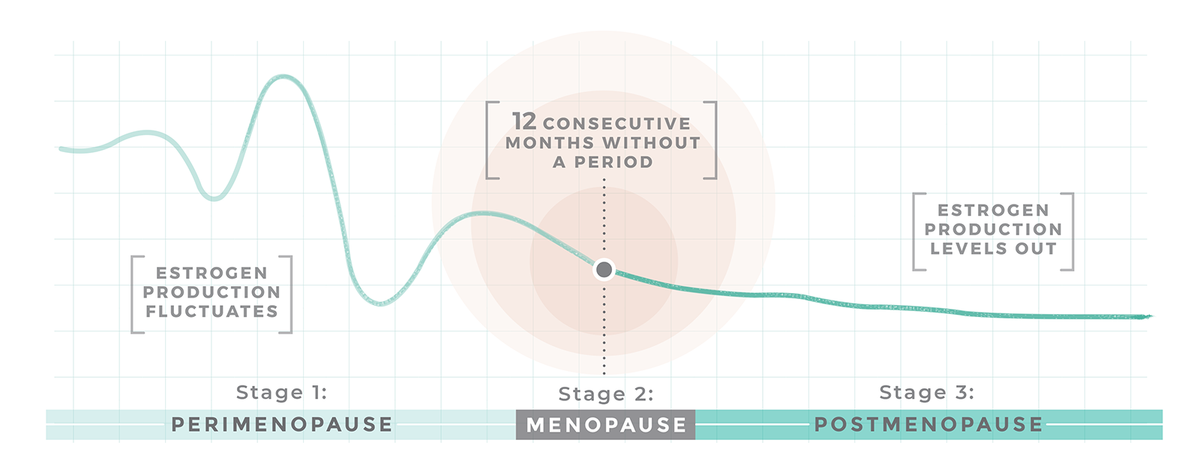What Is Menopause?
Menopause is technically one day of a woman's life. Women may experience symptoms leading up to menopause, but the day she hits one full year without a menstrual period is the day she reaches menopause. After that, she is in post-menopause. However, "menopause," as it is commonly referred to, is the natural process a woman's body undergoes as her ovaries gradually produce less estrogen and eventually stop releasing eggs.
The menopause transition is composed of three different stages:
Stage 1 Perimenopause
ESTROGEN PRODUCTION FLUCTUATES
The first stage of menopause is called perimenopause and for many women it lasts four to eight years. Symptoms may show earlier, but most women begin seeing signs of perimenopause in their 40s.
During perimenopause, estrogen production fluctuates and the first symptoms of menopause can appear. With the change of hormone levels in this menopausal transition, your menopause symptoms could include:
- Hot flashes
- Irregular periods
- Sleep issues
- Night sweats
- Mood swings
- Vaginal irritation
Stage 2 Menopause
12 CONSECUTIVE MONTHS WITHOUT A PERIOD
Once your body has gone a full 12 consecutive months without a menstrual cycle, you've reached menopause. During this time of hormonal change, a woman’s ovaries stop releasing eggs and estrogen levels remain low, leading to a wide range of menopausal symptoms that could include:
- Aches & pains
- Weight gain
- Mood swings
Stage 3 Postmenopause
ESTROGEN PRODUCTION LEVELS OUT
During the years after natural menopause, the average menopausal woman will see a reduction in her symptoms or severity of symptoms. Signs of post-menopausal health risks can be tough to spot, but because the body's estrogen levels remain low, there are several new health conditions women in post-menopause need to be aware of.
Common Menopause Symptoms
Learn More About What You May Be Experiencing
Hot Flashes & Night Sweats
Decreased estrogen production can make the brain think the body is hot. It then triggers it to cool off by dilating blood vessels and sweating
Muscle Discomfort
Loss of estrogen during menopause can increase inflammation in the body and cause muscle aches
Weight Gain
Menopause and weight gain seem to go hand in hand for many. Decreased estrogen can cause weight gain around the abdomen, hips, and thighs












